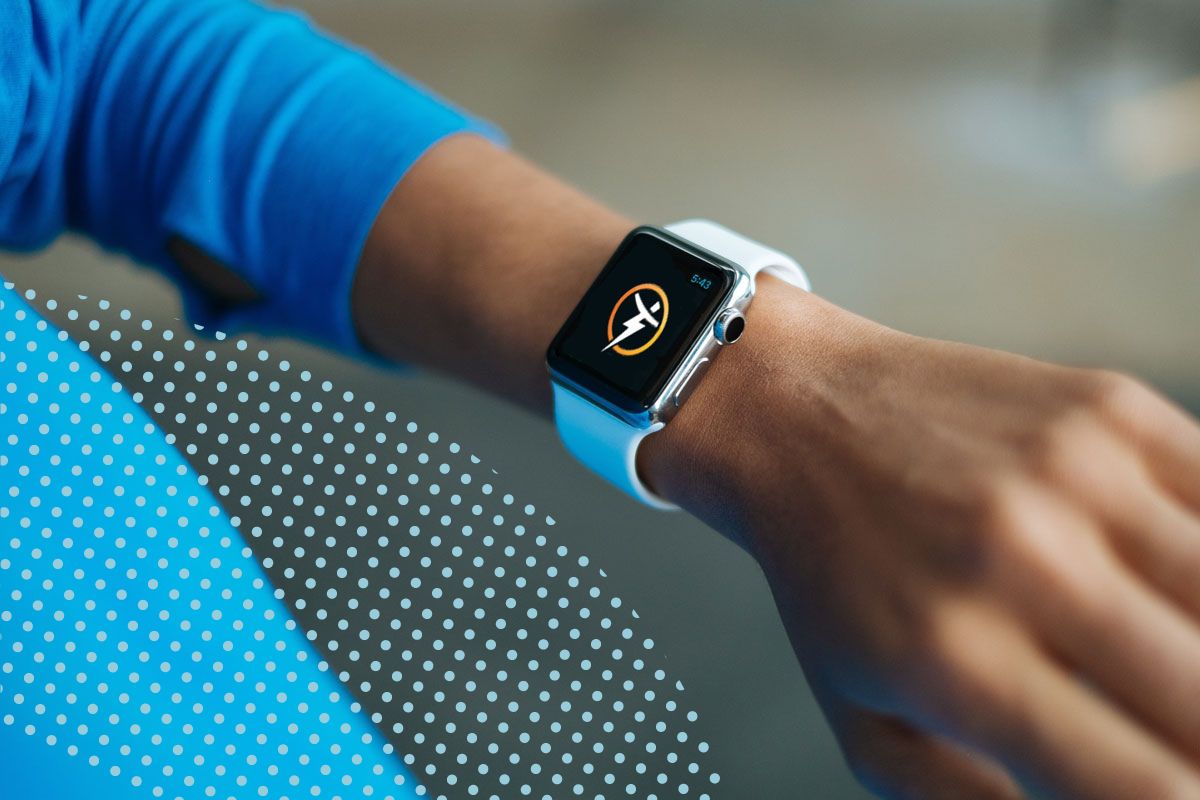Walking down the street, you’ll probably see more people with wearable fitness trackers than regular watches these days. Wearable technology is becoming increasingly popular because it allows people to track their day-to-day activity and gives them a measurable goal to hit. People can also compete and share their successes with friends. As a fitness professional, you may even wear one yourself and track yourself religiously. Whether you wear one yourself or not, it’s important to distinguish between the benefits and some of the drawbacks of fitness wearables so you can recommend them to the right clients.
What’s the Benefit to Fitness Wearables?
Fitness wearables are popular for a reason. They have loads of data that tell people how their eating, moving, and even sleeping habits are going. Companies are competing with each other to make the best product, so they are becoming smarter and more user-friendly with their data. You can even compare your activity from last year to this year with most wearables. Here are some of the top benefits to wearables:
Track Activity and Form Healthier Habits
Fitness wearables do a great job of tracking your NEAT (Non-Exercise Activity Thermogenesis). Basically, it’s all the activities you do outside of your workout. For example, house chores, playing with your kids, and anything else that gets you moving. These things play a much more substantial role than most people realize, so being able to see how often you are standing up and when you are most active throughout the day can be extremely helpful in weight loss and long-term health.
Log Food Intake
Most fitness wearables also allow you to manually track your food as well. When you do this, it will compare against your activity so you can understand if you are balancing calories in versus calories out.
These trackers aren’t perfect when it comes to tracking certain activity, but they are a good benchmark for those that have never seen how their food intake stacks up to their activity level.
Track Sleep Patterns
Not all fitness trackers track your sleep, but a lot do. They’ll provide a graph each morning of how you slept, including things like your REM (deep) sleep, when you were tossing and turning, and how many hours total you slept.
It is especially great for those that notoriously undersleep because it’s a wake-up call for a lot of people to get themselves to bed earlier.
Set and Measure Goals
There are a lot of ways fitness wearables help people set micro goals so that they can reach their long-term goals. Many remind you to stand every hour, and some offer up challenges during particular times of year to make reaching your goals more fun.
Up your game.
Start your free 30-day trial of Trainerize.
What Are the Drawbacks?
After reviewing the benefits of fitness wearables, it may seem common sense to refer them to every client you work with. Why wouldn’t clients want to know exactly what they are doing to reach their goals? However, it’s important to take into consideration that fitness wearables aren’t exactly accurate and can lead to negative, self-destructing behavior.
A “type A” personality may force themselves to beat their activity goal every day, making it more and more challenging to reach that goal. Unfortunately, as great as the benefits are, some activity is more difficult to track accurately. For example, they tend to not capture strength training very well. This may also skew your results when you put your food intake up against your calories burned for the day.
So Which Clients Should You Recommend Fitness Wearables to?
The ideal client that would benefit from fitness wearables is one that is just starting out with exercise and may have a difficult time getting into a routine. They may also be a busy professional or parent that has a hard time staying active and moving throughout their day. These people would benefit the most. They can take a deeper dive into how they can improve their movement throughout the day and understand what could be standing in their way.
Fitness wearables should be used to help remind yourself to move every day, eat well, and try to get on a regular sleep schedule. Don’t focus on every single detail that your fitness wearable tells you. Every day is going to be different, so remind clients to take their fitness wearable seriously with the overall picture, but to not stress the day-to-day. They are a great tool when used correctly and with the right client!

